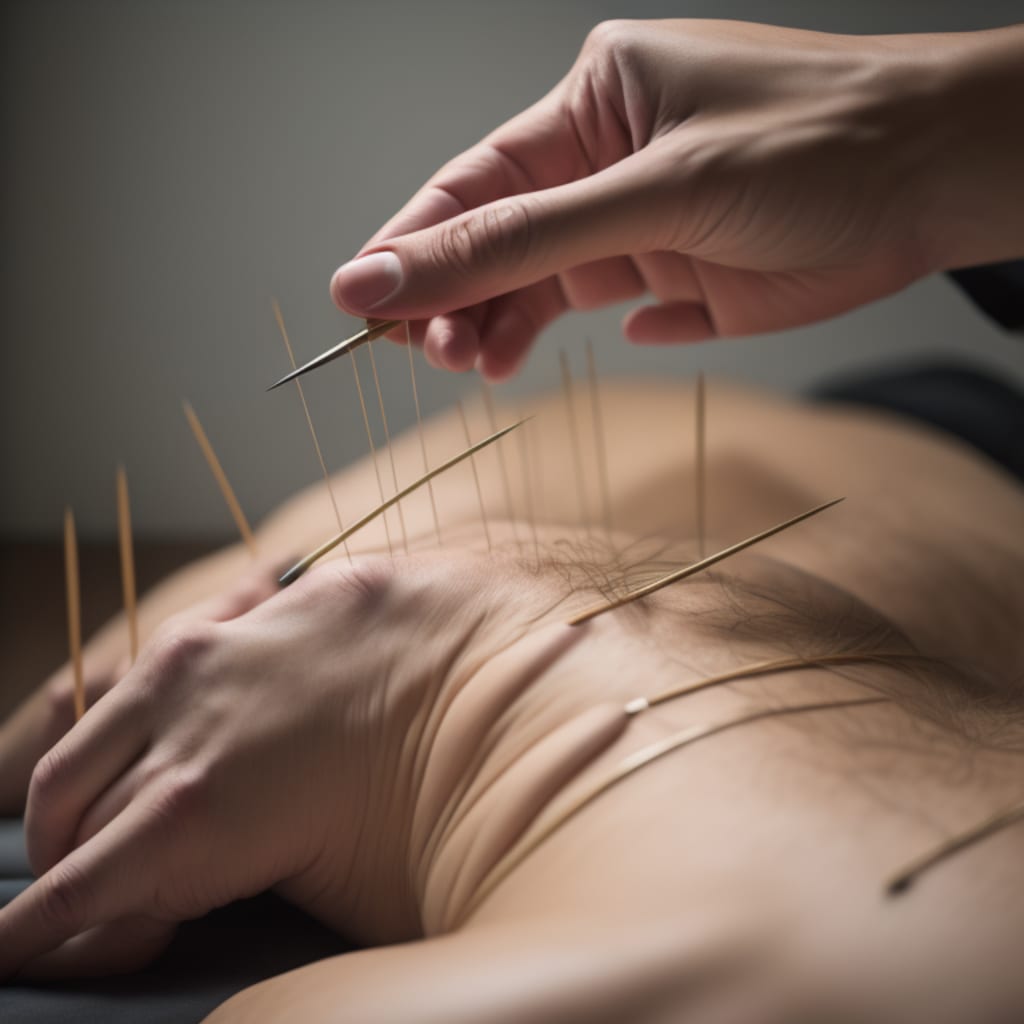Exploring the Benefits of Acupuncture
Ancient Healing for Modern Times

Acupuncture is an ancient healing practice that has been used for thousands of years in traditional Chinese medicine. It involves the insertion of thin needles into specific points on the body to stimulate energy flow and promote healing. While it may seem like a mysterious and unconventional treatment, acupuncture has gained recognition in recent years for its numerous health benefits. In this article, we will explore the benefits of acupuncture and how it can be a valuable tool for promoting well-being in modern times.
Pain Management: One of the most well-known benefits of acupuncture is its ability to alleviate pain. Whether you're suffering from chronic pain conditions like arthritis or experiencing acute pain from an injury, acupuncture can help. The insertion of needles at specific points triggers the release of endorphins, which are natural pain-relieving chemicals in the body. Acupuncture also promotes blood circulation, reduces inflammation, and relaxes muscles, leading to pain reduction and improved physical function.
Stress Reduction: In today's fast-paced world, stress has become a common part of daily life. Acupuncture offers a natural and effective way to manage stress and promote relaxation. The process of acupuncture helps activate the body's relaxation response, reducing the production of stress hormones like cortisol and promoting a sense of calmness and well-being. Regular acupuncture sessions can help improve sleep quality, reduce anxiety, and enhance overall mental and emotional well-being.
Improved Digestive Health: Acupuncture has been found to have positive effects on digestive health. By stimulating specific acupuncture points, it can help regulate digestive functions and alleviate symptoms such as bloating, indigestion, and irritable bowel syndrome (IBS). Acupuncture also aids in improving nutrient absorption, reducing inflammation in the gastrointestinal tract, and promoting a healthy gut microbiome.
Enhanced Mental Health: Acupuncture is not only beneficial for physical health but also for mental and emotional well-being. It can be an effective complementary therapy for conditions such as anxiety, depression, and insomnia. By balancing the body's energy and promoting the flow of Qi (pronounced "chee"), acupuncture helps harmonize the mind and body, reducing emotional distress and improving overall mental wellness.
Boosted Immune Function: Acupuncture stimulates the body's immune response, enhancing its ability to fight off infections and diseases. It strengthens the immune system by increasing the production of white blood cells, promoting better circulation, and improving lymphatic drainage. Regular acupuncture sessions can help prevent illness, reduce the frequency and severity of colds and flu, and support overall immune system function.
Support for Fertility and Reproductive Health: Acupuncture has been used for centuries to support fertility and reproductive health. It can help regulate menstrual cycles, balance hormone levels, and improve blood flow to the reproductive organs. Acupuncture treatments before and during assisted reproductive techniques such as in vitro fertilization (IVF) have shown to increase the success rates of these procedures. Additionally, acupuncture can help reduce stress and anxiety associated with fertility issues, creating a more supportive environment for conception.
Management of Allergies and Respiratory Conditions: Acupuncture can provide relief for allergies, asthma, and other respiratory conditions. By targeting specific acupuncture points, it helps to strengthen the respiratory system, reduce inflammation in the airways, and alleviate symptoms such as congestion, coughing, and wheezing. Acupuncture also promotes relaxation, which can help reduce stress-induced allergic responses.
In conclusion, acupuncture is a powerful healing modality that offers a wide range of benefits for both physical and mental well-being. From pain management and stress reduction to improved digestive health and enhanced immune function, acupuncture provides a holistic approach to health and healing. If you're considering acupuncture as a part of your wellness routine, be sure to seek out a qualified and licensed acupuncturist who can tailor the treatment to your individual needs and concerns. It's important to note that acupuncture is generally safe when performed by a trained professional, but it's always advisable to consult with your healthcare provider before starting any new treatment.
When undergoing acupuncture, the practitioner will first conduct a thorough assessment of your health history and current symptoms. They will then determine the specific acupuncture points to target based on your individual needs. The treatment itself involves the gentle insertion of thin needles into these points, which are typically left in place for a short period of time. Some people may experience a slight sensation or tingling during the insertion, but it is generally painless.
In addition to the direct benefits of acupuncture, many people also appreciate the holistic approach and mind-body connection that it promotes. During an acupuncture session, you are encouraged to relax and focus on your breath, allowing for a sense of mindfulness and self-awareness. This can further contribute to stress reduction and overall well-being.
It's worth mentioning that acupuncture is a complementary therapy and should not replace conventional medical treatments or medications. It is best used as part of a comprehensive approach to health and well-being, in collaboration with your healthcare team.
In conclusion, acupuncture is a time-tested healing practice that offers a myriad of benefits for both physical and mental health. From pain management and stress reduction to improved digestion and enhanced immune function, acupuncture has the potential to improve your overall well-being and quality of life. However, it's important to consult with a qualified acupuncturist and discuss your individual needs and health concerns before embarking on this treatment journey. With proper guidance and personalized care, acupuncture can be a valuable tool in promoting balance, harmony, and vitality in your life.
References:
Berman BM, Langevin HM, Witt CM, et al. Acupuncture for chronic low back pain. N Engl J Med. 2010;363(5):454-461.
MacPherson H, Vertosick EA, Foster NE, et al. The persistence of the effects of acupuncture after a course of treatment: A meta-analysis of patients with chronic pain. Pain. 2017;158(5):784-793.
Park J, Park HJ, Choi J, et al. Adenosine A1 receptors mediate local anti-nociceptive effects of acupuncture. Nat Neurosci. 2014;17(6):805-811.
Zheng Z, Feng S, Li Y, et al. Acupuncture for patients with mild to moderate Alzheimer's disease: A randomized controlled trial. BMC Complement Altern Med. 2016;16(1):108.
Lee MS, Choi TY, Shin BC, Ernst E. Acupuncture for treating attention deficit hyperactivity disorder: A systematic review and meta-analysis. Chin J Integr Med. 2011;17(10):789-797.
Liao YY, Seto K, Saito H, Kawakami T. Acupuncture for postoperative pain management in patients undergoing cardiac surgery: A systematic review. J Cardiothorac Vasc Anesth. 2014;28(6):1567-1573.





Comments
There are no comments for this story
Be the first to respond and start the conversation.